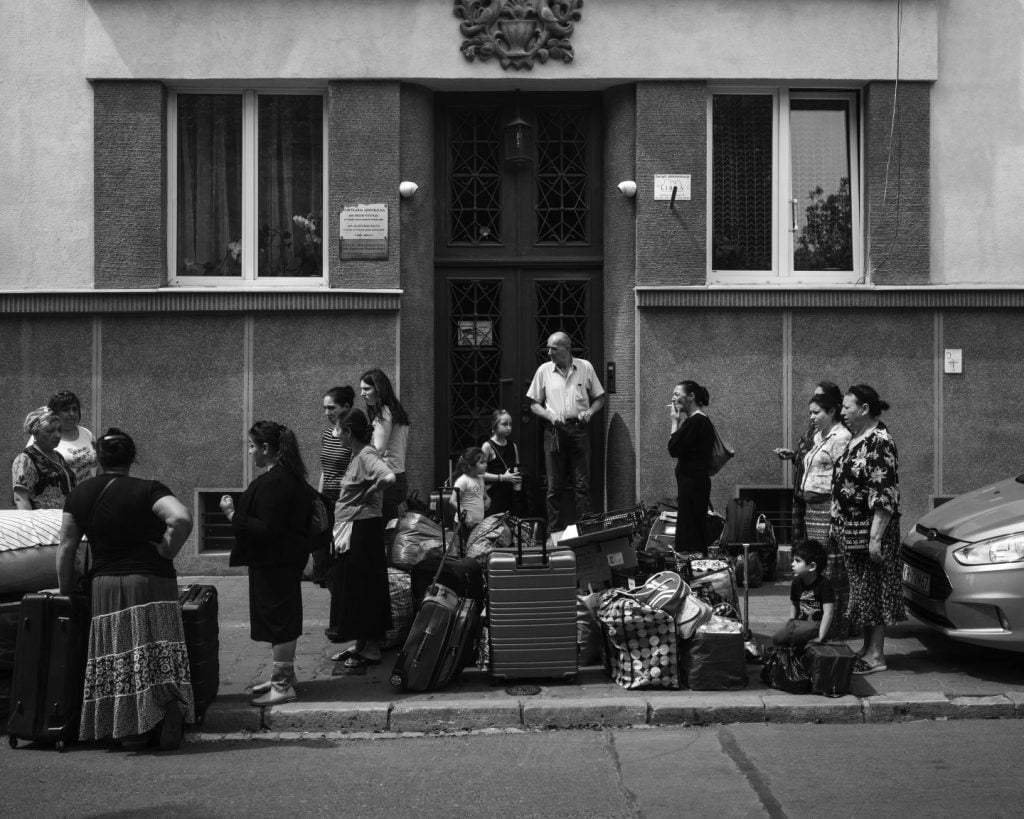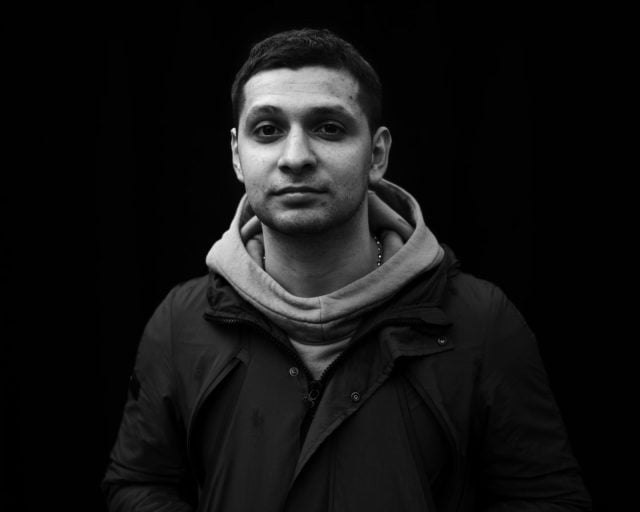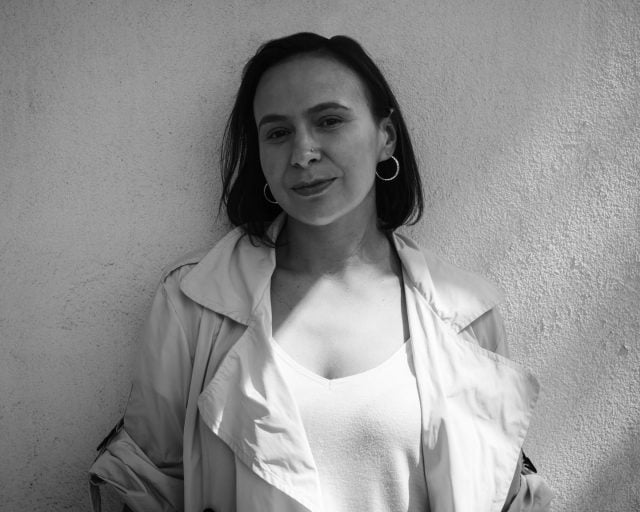
Roma solidarity: one year later
Today, 24 February 2023, marks one year since the full-scale Russian invasion of Ukraine. This article platforms the voices of Roma activists who have been working with Ukrainian Roma over the last year. Listen to their stories.
Olena Vaidalovych, Ukrainian Roma, based in Warsaw, now working at Towards Dialogue Foundation:
The war forced millions to flee their homes. In Ukraine, some 6 million people, 65 percent of them women and girls, are internally displaced, including Romani people. Inevitably, the war is leaving invisible scars. Ukrainian families are divided because of the war and it deeply affects their emotional health. Their trauma cannot pass unnoticed.

I would like to applaud the willpower of Romani organizations and their eagerness to help our people who sought protection outside Ukraine. We, as a foundation, admire the strength of all Ukrainian people, who have shown the world the true meaning of fortitude. But as we know, all wars end, and so too will this one. We stay in solidarity with all. And we consider it our duty to send a loud and clear signal of support to all those affected by the war.
Julian Kondur, Ukrainian Roma, based in Kyiv, Chiricli NGO:

The morning of that day one year ago was like a nightmare. After hearing a succession of explosions starting from around five in the morning, my hopes that the war would not intensify to a massive scale were dissolved. For the first week, there was a feeling of being lost. It was only with the support of friends from other countries that my family and I managed to brace ourselves and start acting.
The first priority was to make it as far from Kyiv as possible, westward. Our region was already surrounded from the east, the north and the west. We began a long trip through the only available route towards Odessa. On our way, we were sharing safe routes with colleagues in the same situation: saving their lives. After we reached more secure areas, we started to mobilize: most of my time during those days in March and April was devoted to directing support to secure food, evacuations, shelters…
Together with colleagues and friends, we re-allocated funds from our then-ongoing projects and reached out to people who were (and still are) in small towns and villages across the country. With MRG colleagues, we told the world what was really happening and where we saw danger for Roma in Ukraine. I realized how important it was to name things as they are; someone who didn’t know anything about Ukraine and the situation of Roma here could easily fall for Russian narratives and propaganda. It was a very traumatic experience but we learned a lot from it.
We became very proud of the Roma volunteering to go to the frontline. They’re fighting not only to liberate Ukraine but also for our recognition as citizens. It’s odd though that sometimes we still need to prove we belong.
I am sure now that our strength is in solidarity, even small actions can sometimes save someone’s life.
Joanna Talewicz, Polish Roma, based in Warsaw, head of Towards Dialogue Foundation:

I remember that morning very well, when I woke up and received messages from my mum and other close ones. The message was: the war has started, Russia has started a full invasion on Ukraine. Of course, like many of us, I felt fear, deep sadness and uncertainty. But I never expected what would happen to us in the following hours and days.
I remember talking to Malgosia Kolaczek, who is the vice-president of the Towards Dialogue Foundation and also my dear friend, about what we – as a foundation but also as humans – can do for those fleeing Ukraine. As an organized foundation we had greater means of acting than some. So we did. Not even once at that moment did we mention any division between helping Ukrainians and helping Ukrainian Roma. It was clear that we needed to help all the humans fleeing.
Today I think that maybe it was the fear, or my being a bit naïve, that stopped us from thinking realistically. We all know very well how difficult the situation for Roma in Ukraine was before the war. It all mattered. I had to face reality very fast: when I started to get calls from the border about the unequal treatment of Ukrainian Roma. We just needed to focus on helping them. I have never seen such open racism towards Roma people: on the border, in reception centres, everywhere.
They were extremely difficult times and I wish to express my gratitude to all who helped us to help Roma in those days. I encountered so many amazing people in those days, people I didn’t know before, who created support groups and just acted. Polish people, including Polish Roma, were day and night working on the volunteering bases, facing awful situations and discrimination. That was just the beginning.
Together with all those people, over the past year we have managed to create a space in Warsaw where Ukrainian Roma feel good, feel welcomed, can build relationships and can also rest a bit from lives too often marked by struggle.
Today I think that we are a very strong community, a family of people from both Ukraine and Poland, who, even if they themselves experienced hard times, are ready to support newcomers arriving now. Some in much harder situations: traumatized by the war, or with the death certificates of their sons and husbands.
I am very grateful for what is happening at the foundation. I am very proud of what our community has done this year, even if the responsibility of helping Roma refugees should be the responsibility of the state, not of civil society, and indeed not only of the Polish Roma civil society.
It all showed us how strong we are and how much we can do when we act together. And we won’t stop. We will go on supporting Roma, building solidarity and breaking barriers. Because we all have much more in common than we think. One thing we share is this difficult year, which has put us all in the same position.
—
If you would like to read more about the situation of Ukrainian Roma in Ukraine and Europe during this year, please read They Have Never Caused any War
Photo: Thanks to support of local Roma organizations and the activists from Salam Lab in Cracow, more than 300 people can stay in the hostel. Credit: Karol Grygoruk / RATS Agency.